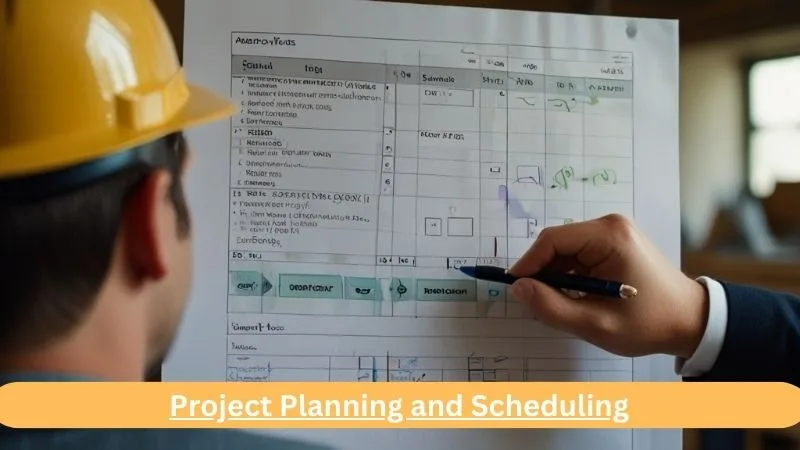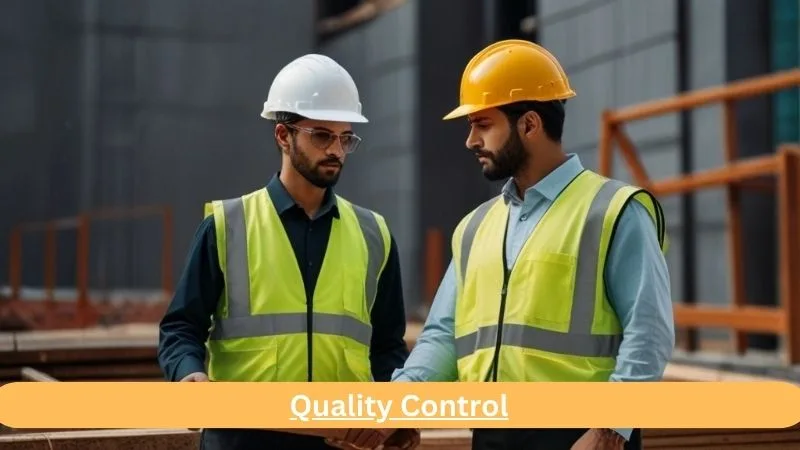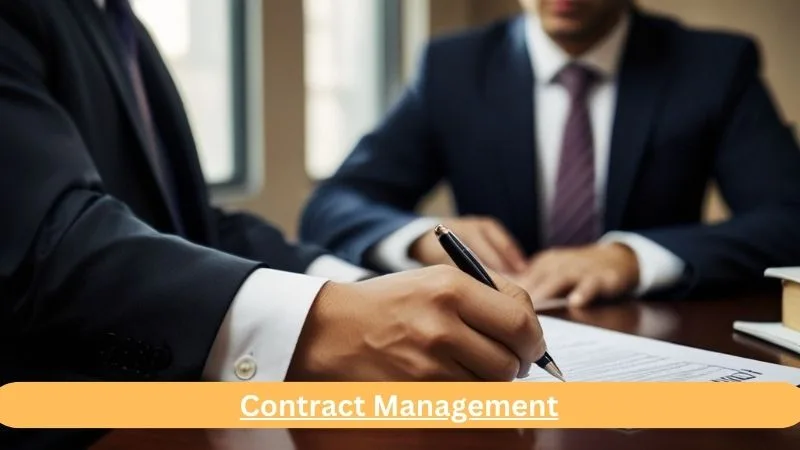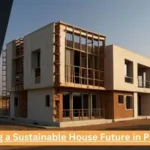Efficient Construction Management for Your Projects
Introduction:
Efficient construction management is the foundation of a successful construction project. It effectively coordinates resources, programs, and activities to guarantee that tasks are finished on schedule, within budget, and to appropriate standards. Effective construction management includes a variety of practices and procedures designed to optimize all phases of a project’s lifecycle, from initial planning to project completion and delivery.
Project Planning and Scheduling:

Detailed planning and scheduling are the basis of good construction management. This involves defining the project, setting clear goals, and creating a timeline that includes all construction phases. Project management tools and best practices, such as Gantt charts and critical path planning (CPM), are used to plan activities, assign responsibilities, and evaluate progress. This detail will help ensure all stakeholders are involved, and potential conflicts are identified and mitigated early.
Budgeting and Cost Control:
Cost control and efficient budgeting are crucial for the financial management of the project. It starts with an accurate cost estimate, including a detailed analysis of labour, materials, equipment, and contingency charges [Construction Management]. Regular budget monitoring and reporting can keep plans on track, while cost-effectiveness adjustments can prevent cost overruns. Methods like Earned Value Management (EVM) can help compare actual results with planned performance to gain insight into the cost performance and health of the project.
Also Read: Essential Tools for Construction Projects
Resource allocation:
Optimal allocation of resources, including labour, materials and equipment, is crucial to maintaining productivity and avoiding delays. Resource management involves predicting needs, planning resources effectively, and ensuring the right resources are available at the right time. Effective resource management reduces downtime, increases productivity and streamlines operations.
Risk Management:
Identifying, evaluating and reducing risks is an integral part of construction oversight. Risk management entails systematically determining potential risks, analyzing their impacts, and developing mitigation strategies [Construction Management]. This includes preventive measures against risks and recovery plans to deal with risks if they arise. Construction risks often include delays, cost overruns, safety issues, and quality issues. A good risk management plan can increase project efficiency and help complete the project.
Quality Control:

Quality control should be discussed in construction management. Strict quality control procedures are used throughout development to ensure the completed item fulfils all specifications and customer needs. Quality control includes regular inspections, building codes and standards compliance, and construction monitoring. Quality assurance services and third-party inspections can increase the reliability and quality of the construction process.
Communication and Collaboration:
Good communication and coordination among all stakeholders, including customers, contractors, manufacturers and suppliers, are crucial to project completion. Open lines of communication and regular updates help keep everyone informed and on track with project goals. Technologies such as regular meetings, newsletters, and collaboration programs facilitate information sharing and ensure all parties understand their roles and responsibilities.
Health and Safety Management:
The importance of health and safety is at the heart of construction management. To protect employee health and minimize the risk of injury, follow strict safety procedures, provide regular safety training, and ensure compliance with regulations [Construction Management]. Health and safety plans include situation analysis, risk assessment, and emergency response procedures. Safety inspections help ensure compliance with safety standards and improve safety on construction sites.
Technology Integration:
It uses modern technologies such as Mobile apps. Building information modelling (BIM) and project management software increase the efficiency and accuracy of construction management. These tools facilitate better planning, faster tracking, and improved decision-making. For example, BIM allows 3D modelling and visualization of the project to help identify problems before construction begins. Project management software enhances overall project coordination by providing a centralized framework for planning, resource allocation, and communication.
Sustainability Practices:
Integrating sustainable practices into construction is becoming increasingly important. Good management includes choosing environmentally friendly products, reducing waste, and using energy-saving solutions to reduce environmental impact. Sustainable building practices also include designing for sustainability, such as using renewable energy and increasing efficiency. Certifications in sustainability, including LEED (Leadership in Energy and Environmental Design), demonstrate the integration of sustainability into construction.
Procurement Management:
Effective purchasing processes ensure that goods and services are acquired efficiently and on schedule. Establishing trustworthy relationships with suppliers, negotiating bids, and maintaining effective contracts are critical to the project’s success. Product management will include:
Purchasing products that meet quality standards
Managing delivery times
Ensuring products are supplied on schedule to prevent delays in the project
Marketing planning is similar to marketing plans and resources.
Change Management:
Managing change well in construction projects is essential because changes, modifications, and other modifications are expected. Change management processes help address these changes without major disruptions [Construction Management]. This includes analyzing the impact of the change, obtaining necessary approvals, and communicating the change to all stakeholders. Change management ensures that changes are integrated effectively, minimizing delays and cost increases.
Contract Management:

Proper contract management ensures that everyone complies with the terms and conditions of the contract. This includes monitoring performance, managing conflicts, and ensuring that products are supplied in compliance with the agreement. Effective contract management includes keeping detailed records, regularly reviewing contract terms and managing contract obligations. A clear and well-drafted contract can avoid misunderstandings and provide a framework for resolving disputes.
Performance Monitoring and Reporting:
Regular monitoring and reporting of project performance details the project’s status and progress. Key performance indicators (KPIs) and progress reports help you track various aspects of your project, such as on-time, on-budget, and quality metrics. Performance monitoring tools monitor activities in real time, allowing for timely intervention and adjustments. Transparent reporting ensures that all parties are informed about the project’s status and problems.
Continuous Improvement:
Commitment to continuous improvement ensures the effectiveness of construction management. Analyzing successful projects, gathering stakeholder feedback, and applying lessons learned can lead to better practices and improve future projects. Continuous improvement involves reviewing processes regularly, identifying areas for improvement, and implementing best practices. This approach encourages innovation and enables continuous improvement management to adapt to changing business conditions.
Conclusion:
Efficient construction management is a multidisciplinary discipline requiring planning, control, mitigation, and continuous improvement. By focusing on these critical elements, construction managers can ensure the success of quality projects that meet customer needs and business standards [Construction Management]. Good construction management increases the project’s profitability and sets the stage for long-term success in the construction industry.
Construction Management – FAQs:
Q1. Which project management method is best for construction?
Ans: Waterfall management, also known as project management, is still one of the most widely used methods in construction today. The name comes from the approach to software development that emphasizes the progression where each step leads to the next.
Q2. What is the most essential thing in project management?
Ans: Detailed planning is the most essential part of good project management. The larger the project, the more preparation it requires. A carefully thought-out project increases productivity and offers a step-by-step plan for completing the job on time and within budget.
Q3. Why choose construction project management?
Ans: Construction Managers are responsible for many projects, including schools, hospitals and residential buildings. Additionally, by building sustainably, you directly protect the environment and enhance living standards for future generations.





Leave a Reply